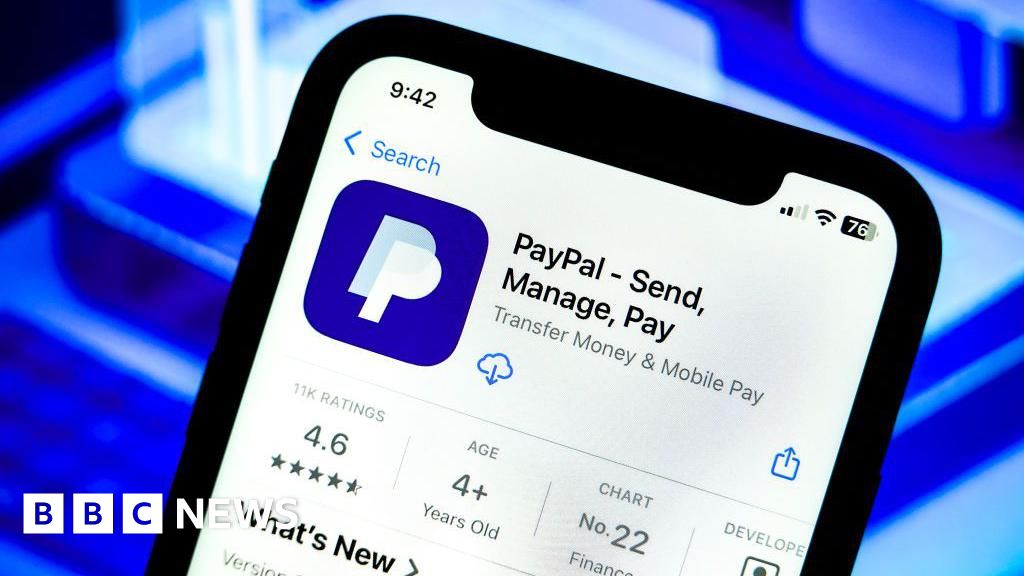European banks have seen widespread unauthorised direct debits from PayPal accounts, the German Savings Banks Association (DSGV) has reported. According to the German newspaper Sueddeutsche Zeitung (SZ), payments worth approximately 10 billion euros (£8.6 billion) had to be blocked due to a failure in PayPal's fraud-checking system.
Payments were ceased on Monday when lenders alerted the company about millions of suspicious direct debits from the payment platform. The DSGV has confirmed to the BBC that incidents involving unauthorized direct debits initiated by PayPal against various credit institutions have occurred.
Responding to Reuters, a PayPal spokesperson stated that certain transactions from our banking partners and potentially their customers experienced a temporary service interruption. They also mentioned that they identified the cause swiftly and were working closely with banking partners to ensure all accounts are updated.
The DSGV noted that PayPal had acknowledged the disruptions and ensured the problem has been resolved. As of now, Payment transactions to and from PayPal have been running normally again, they reported.
These incidents significantly impacted payment transactions throughout Europe, especially in Germany, with supervisory authorities kept informed regarding the situation at PayPal.
PayPal usually implements filtration measures to prevent scams and fraudulent transactions, particularly targeting fake direct debits initiated by criminals. However, according to SZ, on this particular Monday, the filter system failed to function correctly, allowing both fraudulent and genuine direct debits to be processed by banks.
As a result of the debacle, PayPal shares dipped by 1.9% on Wednesday.
Payments were ceased on Monday when lenders alerted the company about millions of suspicious direct debits from the payment platform. The DSGV has confirmed to the BBC that incidents involving unauthorized direct debits initiated by PayPal against various credit institutions have occurred.
Responding to Reuters, a PayPal spokesperson stated that certain transactions from our banking partners and potentially their customers experienced a temporary service interruption. They also mentioned that they identified the cause swiftly and were working closely with banking partners to ensure all accounts are updated.
The DSGV noted that PayPal had acknowledged the disruptions and ensured the problem has been resolved. As of now, Payment transactions to and from PayPal have been running normally again, they reported.
These incidents significantly impacted payment transactions throughout Europe, especially in Germany, with supervisory authorities kept informed regarding the situation at PayPal.
PayPal usually implements filtration measures to prevent scams and fraudulent transactions, particularly targeting fake direct debits initiated by criminals. However, according to SZ, on this particular Monday, the filter system failed to function correctly, allowing both fraudulent and genuine direct debits to be processed by banks.
As a result of the debacle, PayPal shares dipped by 1.9% on Wednesday.






